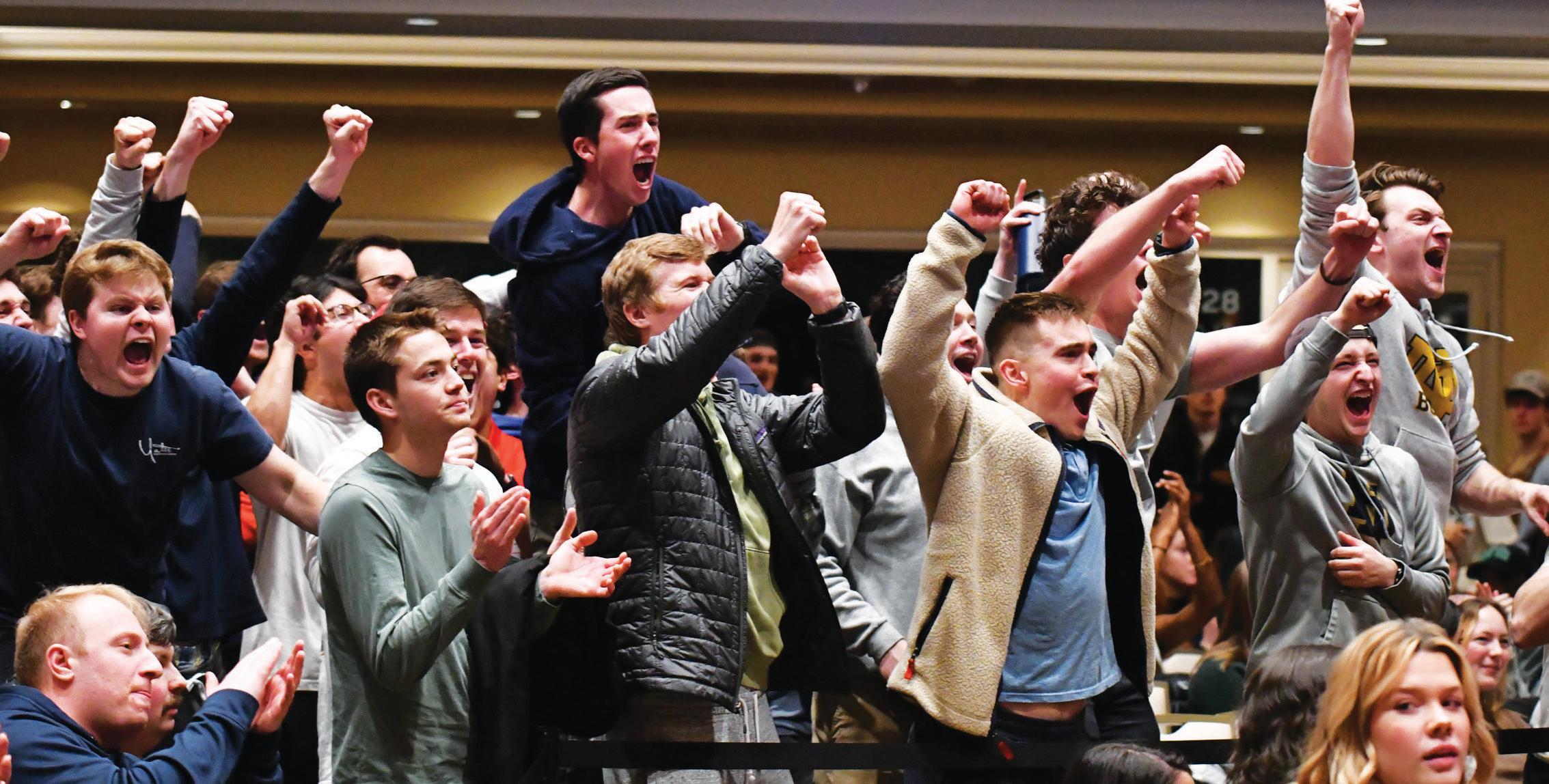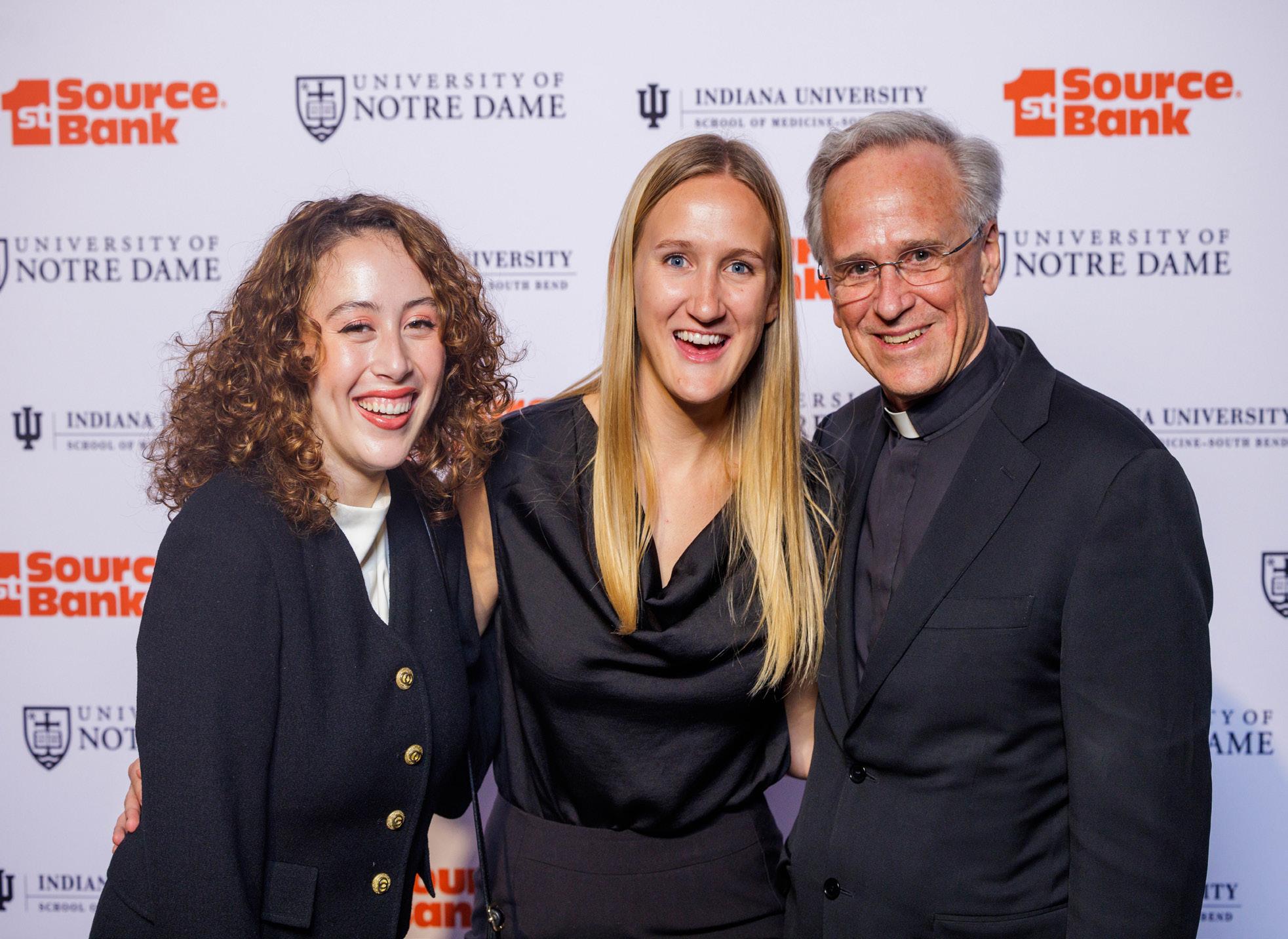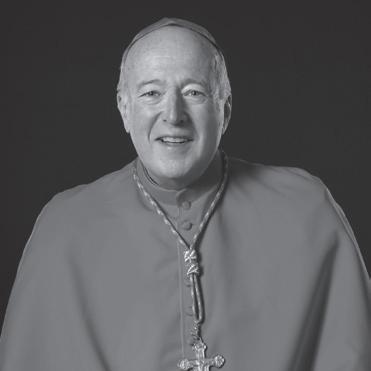
6 minute read
Petition for Dwayne Jones’ murder
By CAROLINE COLLINS news Writer
Editor’s note: This article contains discussions of violence against transgender individuals.
dwayne Jones was a transgender teenager who was murdered by a mob in Jamaica in 2013. They were beaten, stabbed, shot and run over by a car when they showed up to a community dance party wearing a dress.
now, 10 years later, notre dame student Policy network (sPn) students are working with Washington Program teaching professor in political science Thomas Kellenberg to petition the Inter-American commission on human rights (IAchr) demanding that Jamaica investigate and prosecute the murder of Jones.
Juniors Kiera votzmeyer and Jensen enterman are leading the project. votzmeyer started working on the project after attending the Washington Program in d c. last spring.
“We’re really passionate about ensuring that [LGbTQ+] people are treated with the same respect, regardless of identity,” votzmeyer said. “That’s something that’s been stated multiple times by different international bodies, but it’s not something that’s been followed through with, as evident by this murder.”
Kellenberg filed a petition for Jones’ case with the IAchr in 2016. The IAchr is an autonomous body of the organization of American states that engages in fact-finding missions and rules on cases alleging human rights violations.
“It’s an international commission,” votzmeyer said. “[Petitioning to the IAchr] not only makes the statement to Jamaica but to every [IAchr] member, that this behavior is not acceptable and should not be tolerated.”
The sPn students are working to pursue the petition that Kellenberg initially filed. votzmeyer said they are working to gather amicus briefs to submit to the commission to show they have support for the case from prominent human rights organizations around the world. They are also soliciting these briefs from human rights clinics at top law schools.
In addition to drafting briefs they are also “building a coalition of nongovernmental organizations, international law firms and human rights clinics to hold Jamaica responsible,” Kellenberg said.
After the briefs are submitted to the court by may 1, Jamaica will have the opportunity to respond, and then the commission will issue a decision on the case.
Kellenberg said the remedies they are seeking from the commission are to hold a hearing in Jones’ case, to declare Jamaica in violation of the American convention on human rights, to establish an international group of independent experts to oversee an investigation of Jones’ murder and to repeal all laws that criminalize same-sex intimacy in Jamaica.
Jamaica’s anti-sodomy laws dating back to 1864 criminalize homosexual conduct. These colonial-era laws were i ntroduced to support british control and attempt to set standards of behavior. however, votzmeyer said these laws create inequality and stigmatize people in the LGbTQ+ community.
“The basis for our legal argument is that this law is the root of [LGbTQ+] hate in Jamaica and the law needs to go,” she said.
Kellenberg explained that these laws precipitate homophobia and anti-LGbTQ+ violence in Jamaica.
“The commission has found that there’s a link between sodomy laws and human rights abuses against LGbTQ+ persons, insofar as those laws condone discrimination, stigmatization and violence by providing a social sanction for abuse,” Kellenberg said. most universities in the country have a human rights clinic in the law school that would tackle these types of cases. however, notre dame Law school doesn’t have a human rights clinic, so this work that is typical of law students is being done by undergraduates. votzmeyer said working on the project has been a rewarding experience for real-world applications of policy work and also the opportunity to advocate for change and justice for Jones.
“This is really a tribute to our students that they’re able to do this high-level work as undergraduates,” Kellenberg said.
“To know that we’re supported by such well [known] and educated people has been really validating, and it’s uplifting to see that so many people are so passionate about this issue too.”
Corrections blessing over the art pieces in the native Potawatomi language. m artin offered a paper copy of this prayer to the c enter for s ocial c oncerns to be displayed in the coffee house alongside the artwork. f ollowing the e lder’s invocation, two of the local artists with pieces in the collection offered commentary and reflection on their art. h er two pottery pieces focus specifically on the Turtle c lan, and elements of the clan’s culture that are meaningful to herself and her tribe. f odness told The o bserver that the inspiration for her art comes from formative periods in her childhood, spending time with her father and siblings outside. s he described that her family and her tribe instilled in her the importance of creating an intimate relationship between herself and the land. d avid m artin, the second artist present at the event, has lived in Zenda o dan (the Potawatomi name for s outh b end, i ndiana) his whole life. h is art takes various forms in the collection, including oil paintings and beadwork. o ne of m artin’s paintings on display, “Thunderbird” focuses primarily on his tribe, the b ear c lan. m artin also commented on the beadwork pieces he created.
A story published in Friday’s paper on the off the Ave coffee shop misspelled erin bennett’s name and failed to name three of the shop’s founders. The article also misnamed the coffee shop. The correct name is off the Ave. The observer regrets these errors.
All are welcome.


“We thank the c reator for the wild animals, the ones that crawl, the ones that walk and the birds. We asked him, for all those spirits that are here today to bless these halls and all who enter them,” m artin said.
Kathy g ertz f odness, creator of the pottery pieces in the back corner cabinet, described that she had been creating pottery since high school.
“ i feel like this is my legacy that i ’m leaving behind. n ot only does it represent me, but more importantly, it represents us as a tribe,” f odness said.
“When i was a little girl, my dad would wake us up early on the weekend. s o, when we get home for walking, and that’s where my inspiration comes from. i t was just ingrained,” f ondness said.
“The Thunderbird is actually considered a water protector, and i created it using copper. The copper material we use a lot of times for bowls and ceremonial items. i t is known as a symbol of healing. i n the background, those are abstracts of water lilies since the thunderbird is a water protector,” m artin noted.
“The first piece, the blue with the lightning on it, is a dance tie. i t’s a men’s contemporary dance tie. There’s actually two beaded sections to it. i f you look closely at the section with the lighting on it, i made that when i was 18,” m artin said.
Jason Wesaw, one of the local artists, was a driving force that set this installation in motion. u nfortunately, he was not able to attend the event, but h ebbeler concluded the event with remarks that Wesaw hoped to share with the community.
“Wesaw wanted me to communicate what his work is about,” h ebbeler said. “ i remember him saying that his work is about three things: the spirit and nurturing power of the natural world, the ways in which ancient Potawatomi traditional culture remains relevant in modern times and building bridges of communication and understanding between human beings of all races, religions, cultures and ages.”
“This is what this collection is about,” h ebbeler continued. “The art that we get to enjoy, the conversations and the relationship building that resulted in the commitment to doing this collection. m ay the work inspire and instruct.” s tudents, staff and local community members can stop by to view the permanent art collection anytime in the coffee house.
Contact Kate Kirwan at kkirwan@nd.edu via email to the irish rover regarding the undergraduate community at fischer, the ucf offers another residential community to our undergraduate students,” she wrote. russell said the new community is an “extension of the university’s residential model.”
“The ucf remains committed to student formation and community, and its residents will continue to experience the hallmarks of residential life: a rector and hall staff, students from multiple class years and intentional community building in a unique setting,” she said.
Contact Isa Sheikh at isheikh@nd.edu
Santos
colombia] in an effort to end the long civil war,” the press release said.
according to the release, the Kroc institute was given primary responsibility for technical verification of the peace accord between the colombian government and revolutionary forces. The result was the Peace accords matrix, the first time a university had been involved so closely in such an agreement. in his hesburgh Lecture, santos shared his vision for leadership to notre dame students.

“if you lead with a positive mind and with the truth, you will make the world a better place,” santos said. “and let it be said about you that one life has breathed easier because you have lived.”








